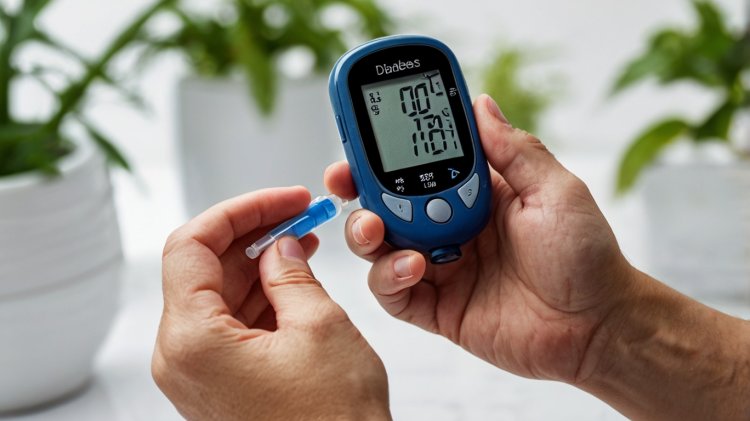Managing Type 2 Diabetes and Hormonal Imbalances: Tips and Treatments
Learn how hormonal imbalances can impact type 2 diabetes management. Discover practical tips, lifestyle changes, and treatment options for better control

Introduction
Type 2 diabetes and hormonal imbalances are closely connected, with one often influencing the other. Hormones like insulin, glucagon, and cortisol play significant roles in regulating blood sugar levels, and even slight imbalances can disrupt diabetes management. This guide explores the link between diabetes and hormones, offering actionable strategies to help you maintain control and live a healthier life.
The Link Between Type 2 Diabetes and Hormonal Imbalance
Insulin and Glucagon: The Dynamic Duo
Insulin and glucagon, both produced in the pancreas, work together to maintain blood sugar balance. An imbalance in insulin levels can disrupt glucagon production, leading to higher blood sugar levels and increased diabetes complications.
Cortisol’s Role in Blood Sugar Management
Cortisol, the stress hormone, is another key player. Elevated cortisol levels can raise blood sugar, making it harder for insulin to regulate glucose effectively. Chronic stress exacerbates this issue, further complicating diabetes management.
Strategies to Manage Diabetes and Hormonal Imbalances
Medical Care and Medication Management
-
Take medications as prescribed: Regularly consult your healthcare provider to ensure your treatment plan is effective.
-
Adjust treatments as needed: Hormonal imbalances may require medication adjustments to maintain blood sugar levels.
Lifestyle Changes
-
Balanced Diet: Work with a dietitian to develop a meal plan rich in whole grains, lean proteins, and healthy fats.
-
Exercise Regularly: Aim for at least 150 minutes of moderate activity weekly to improve insulin sensitivity.
Stress Management
-
Mind-Body Exercises: Practices like yoga, tai chi, and meditation can help lower cortisol levels.
-
Prioritize Sleep: Quality sleep supports hormone regulation and overall health.
Treatment Options for Type 2 Diabetes
Lifestyle Interventions
-
Weight Loss: Losing 5-10% of body weight can significantly improve insulin sensitivity.
-
Physical Activity: Regular exercise not only lowers blood sugar but also enhances hormonal balance.
Non-Insulin Medications
-
Metformin: Reduces glucose production in the liver and improves insulin sensitivity.
-
SGLT2 Inhibitors: Help the kidneys remove excess glucose through urine.
-
GLP-1 Agonists: Mimic natural hormones to regulate blood sugar levels and promote weight loss.
Insulin Therapy
-
When Insulin is Needed: Some individuals may require insulin when other medications are ineffective.
-
Temporary Insulin Use: Situations like pregnancy or hospitalization may necessitate short-term insulin use.
When to Contact Your Doctor
Signs You Need Medical Assistance
-
Persistent difficulty managing blood sugar levels
-
Symptoms of hormonal imbalance, such as fatigue or unexplained weight changes
-
Concerns about current medications or treatment efficacy
Regular Checkups
-
Regular monitoring of blood sugar and hormonal levels is crucial for effective diabetes management.
FAQs
1. How does stress affect diabetes?
Stress increases cortisol levels, which can raise blood sugar and make it harder to manage diabetes.
2. Can hormonal imbalances cause diabetes?
While hormonal imbalances don’t directly cause diabetes, they can exacerbate insulin resistance and blood sugar control issues.
3. What is the best diet for managing diabetes and hormones?
A balanced diet rich in whole foods, low-glycemic carbs, and lean proteins helps regulate blood sugar and hormones.
4. Is insulin therapy permanent for type 2 diabetes?
Not always. Some individuals may need insulin temporarily during specific situations like pregnancy or illness.
5. Can exercise help with hormonal imbalances?
Yes. Regular physical activity improves insulin sensitivity and helps regulate hormones like cortisol and glucagon.
Conclusion
Managing type 2 diabetes alongside hormonal imbalances requires a comprehensive approach that includes medical care, lifestyle adjustments, and stress management. By understanding the intricate relationship between hormones and diabetes, you can take proactive steps to maintain balance and improve your overall health. Regular communication with your healthcare provider ensures your treatment plan remains effective and tailored to your needs.










